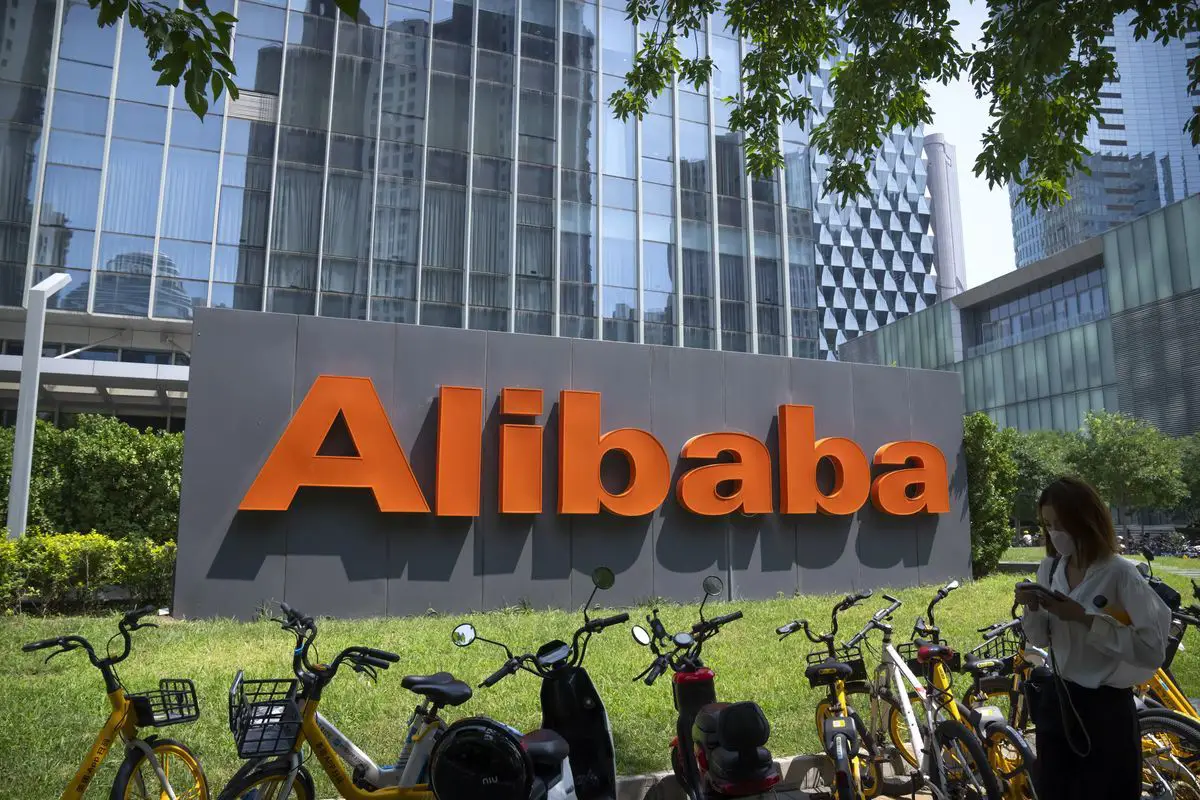- Alibaba Cloud has introduced its AI-powered chatbot, Tongyi Qianwen, which can communicate in Chinese and English and is modeled after the ChatGPT technology.
- The chatbot will first be integrated into Alibaba’s DingTalk and Tmall Genie, before being introduced to all of Alibaba’s products in the future.
- The Tongyi Qianwen model will be personalized using client’s proprietary data, reducing costs and resources for the companies.
Alibaba’s cloud computing unit, Alibaba Cloud, revealed its latest product, Tongyi Qianwen, on Tuesday, modeled after the ChatGPT technology. Tongyi Qianwen can communicate in both Chinese and English and will first be integrated into Alibaba’s DingTalk, a communication platform for workplaces, and Tmall Genie, a smart home appliances provider.
The company made the announcement through a press release. The news had a positive effect on the stock prices of Alibaba, with Hong Kong-listed shares increasing over 3%. However, the share prices of Baidu in Hong Kong decreased by 6%.
Tongyi Qianwen to compete ChatGPT
During the 2023 Alibaba Cloud Summit, the company announced that it plans to introduce its AI-powered chatbot, Tongyi Qianwen, to all of its products, including enterprise communication and e-commerce, in the upcoming future. However, no specific timeline was revealed during the event.
“We are at a technological watershed moment driven by generative AI and cloud computing, and businesses across all sectors have started to embrace intelligence transformation to stay ahead of the game,” stated the chairman and CEO of Alibaba Group and CEO of Alibaba Cloud Intelligence, Daniel Zhang.
In February, Alibaba informed CNBC that it was developing a competitor to ChatGPT.
“The new AI model will be integrated across Alibaba’s various businesses to improve user experience in the near future. The company’s customers and developers will have access to the model to create customised AI features in a cost-effective way,” the company stated.
Alibaba Cloud will provide its clients with access to Tongyi Qianwen through the cloud and assist them in creating personalized large language models. By utilizing the proprietary information and data of clients, the chatbot will be “fine-tuned” to meet their specific needs, resulting in reduced costs and resources for the companies. Alibaba Cloud’s enterprise customers located in China will have the opportunity to test Tongyi Qianwen during the beta phase.
“We hope to facilitate businesses from all industries with their intelligence transformation and, ultimately, help boost their business productivity, expand their expertise and capabilities while unlocking more exciting opportunities through innovations,” said Jingren Zhou, CTO of Alibaba Cloud Intelligence, in the release.
Alibaba Cloud also announced that Chinese developers can request to participate in the Tongyi Qianwen beta testing to build their AI applications on a larger scale. Additionally, the chatbot’s model will soon include more advanced AI capabilities, including image understanding and text-to-image functionality, to provide users with even more compelling features. It’s worth noting that Alibaba is not the only Chinese company to unveil a ChatGPT alternative, as Baidu introduced their own version called Ernie Bot in March.

Numerous Chinese technology giants, including Alibaba, Baidu, and NetEase, have revealed their plans to launch ChatGPT-style products. Since 2018, Alibaba has been ranked as the third-largest public cloud infrastructure as a service (IaaS) provider globally, as reported by the International Data Corporation. Furthermore, according to technology research firm Gartner, the company has held the position of the world’s third-largest and Asia Pacific’s largest IaaS provider by revenue in U.S. dollars since 2018.
The announcement of Alibaba’s Tongyi Qianwen, a ChatGPT-style product, is yet another example of China’s growing dominance in the tech industry. As Chinese tech giants, such as Alibaba, Baidu, and NetEase, continue to invest in and develop advanced AI technology, they are quickly becoming leaders in the global market.
The introduction of Tongyi Qianwen has the potential to significantly reduce costs and resources for companies, making it an attractive option for businesses looking to incorporate advanced AI capabilities into their operations. The race to create the best ChatGPT-style product is only heating up, and it’s clear that Chinese companies are at the forefront of this technological revolution.





